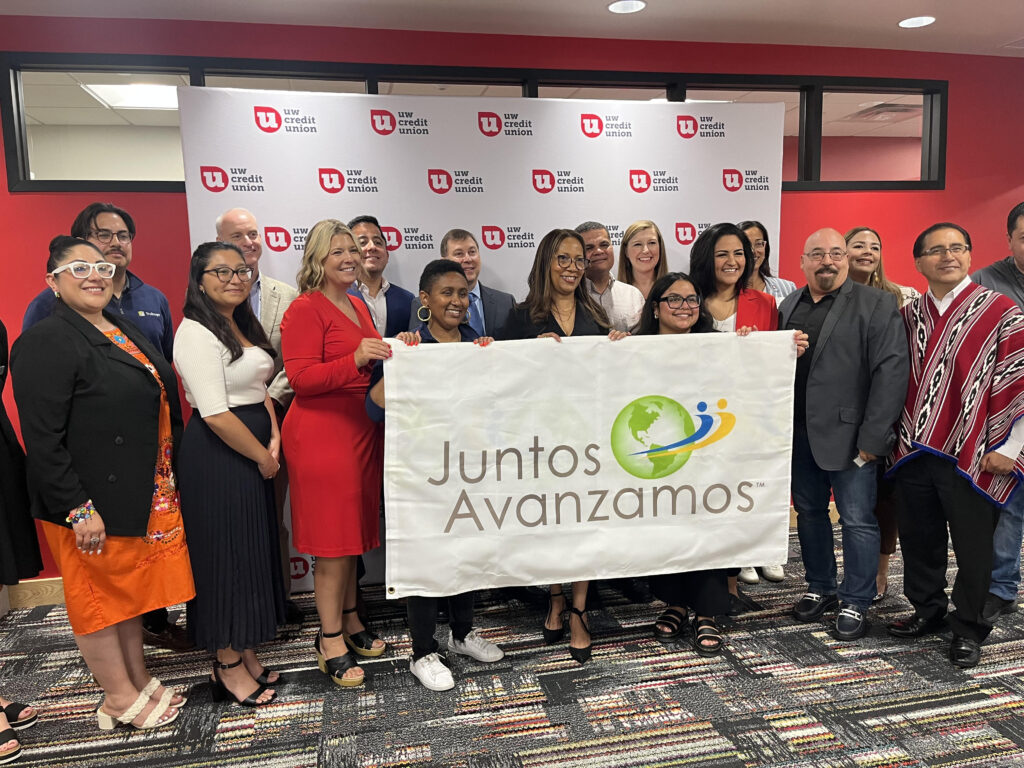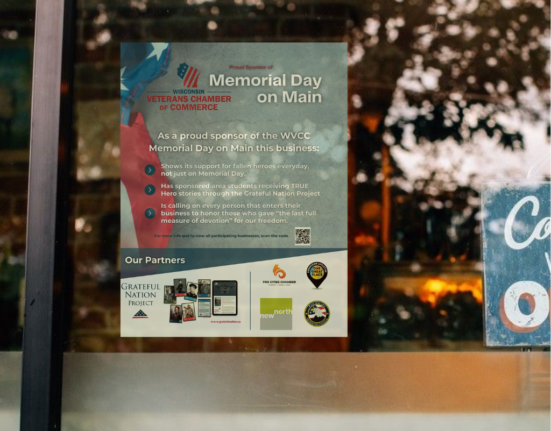
UW Credit Union has received the Juntos Avanzamos (“Together We Advance”) certification for its commitment and ability to service Latino and Hispanic members.
UW Credit Union earned the certification for its low friction and open services for Latino, Hispanic and immigrant customers in its credit unions across Dane County and Milwaukee. The coveted certification is held by only 134 out of over 4,700 credit unions across the country. Receiving a Juntos Avanzamos certification shows UW Credit Union’s ongoing efforts to remove financial barriers at its locations across Dane County and Milwaukee.
“Our motto here at the credit union is ‘Here for every you,’ but if we had to write a second line to that, we probably would’ve said ‘Together we advance — juntos avanzamos,’” UW Credit Union Paul Kundert said at a ceremony Thursday. “This recognition means a lot to us at UW Credit Union because we’ve been working on this and taking steps to this for years. It’s a great validation and indication recognizing the work we’ve been doing and it’s an opportunity for us to benchmark what we’ve been doing and learn about more opportunities to move forward.”
UW Credit Union’s efforts to better serve Dane County’s Latino and Hispanic communities has been in the works for 20 years. Its branches are bilingual and its processes are adaptive towards the realities of being an immigrant trying to bank in the United States. UW Credit Union ongoing efforts has it now serving two in five Hispanic and Latino residents in Dane County, according to research done by Copera.
Pablo DeFilippi, executive vice president of the Inclusiv Network, sees the efforts and has been shocked by UW Credit Union and some of its branches.
“One thing about UW that was a surprise to me, is that they have many branches where Spanish is almost the dominant language. I live near Fish Hatchery and the branch there is like walking into some branch in Mexico — everyone speaks Spanish,” DeFilippi said. “That’s really important because it’s about the message that you’re sending to the community. When I walked into that branch, I could recognize myself in the branch and that’s huge.”
DeFilippi came from Chile over two decades ago. At other banks, he felt like he was unable to see himself and there was no connection or understanding with his experience. At UWCU, DeFilippi sees himself, and fellow Hispanic and Latino people, being met in an informed and accessible way where the services are tailored for them.
DeFilippi worked with Kundert and UW Credit Union through the Juntos Avanzamos certification, which is granted by the Inclusiv. Based in New York, Inclusiv has a Madison office. The certification process looks at what level of friction would present challenges in accessing financial services at credit unions.
At UW Credit Union friction was low. The credit union employs and pays more for bilingual employees. The credit union offers a tool to make sure that Hispanic and Latino customers can find the exact help they need by getting matched up with a Spanish speaking employee instead of checking out branches in hopes of finding one that meets their needs. A huge one that Kundert highlighted was UW Credit Union not requiring forms of identification that are normally held by U.S. citizens to access financial services like social security numbers, U.S. government issued I.D.s, birth certificates and other forms of identification.
“We look at the practices, the policies and the procedures. We’re looking at the points of friction. Are they asking for a social security number… are they asking for U.S. government issued I.D.s? If they do then that’s a problem and they’re filtering people out,” DeFilippi said.
UW Credit Union allows for the use of documentation commonly used by immigrant communities and not widely accepted by financial institutions. For example, UWCU allows for the use of an Individual Tax Identification Number (ITIN) to get a loan. Doing this deviates from the tradition of banks requiring a social security number instead.
“There is no regulatory requirement. There’s no business purpose. It’s simply a tradition that’s gone unchallenged,” Kundert said.
Kundert and DeFilippi see the challenge of requiring a social security number. Credit scores are tied to it and without one, and only an ITIN, it is often an impossible challenge for immigrants to get a loan to start a business or buy a house. The two think that challenging the norm is a way to promote wealth building and financial security for Dane County’s Hispanic and Latino population.






